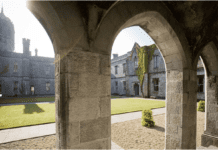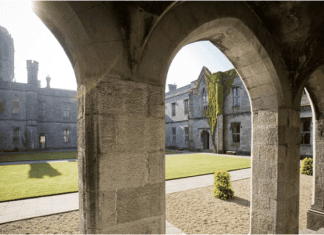A recent beach clean up event at Claddagh highlighted the problems that come from people flushing wet wipes and other sanitary products down the drain.
Irish Water staff along with transition year students from Coláiste Iognáid and councillor Niall McNelis gathered up multiple bags of wet wipes and other sanitary products from the beach, even though it had recently been scoured by local clean coasts groups.
Sanitary products such as wet wipes and cotton bud sticks are a serious problem for sewage systems, as they frequently get flushed rather than put in the bin, even though they are not meant to be.
This can cause massive blockages in sewers, causing waste to flow back and flood homes and gardens.
Even when they do pass through the sewers this waste gathers on beaches where it poses a threat to wildlife as seabirds often ingest plastic and sewage related litter, mistaking it for food.
Speaking after the event Councillor McNelis said “Wet wipes cause blockages of pipes in peoples’ homes and in the public sewerage network. They can also end up in the marine environment and pollute our beaches.
We are asking the people of Galway to ‘Think Before They Flush’, and to stop flushing wet wipes down their toilets.
“There are myths that these wet wipes are coming from the wastewater treatment plant in Mutton Island. I recently visited the treatment plant and have seen at first hand the screens that remove 16-18 tonnes of wet wipes, and other none flushable items every month.”
“I can confirm that they do not come from Mutton Island, but from people’s toilets,” he concluded.
Shay Walsh, Regional Wastewater Lead for Galway added “It was great to see the transition year students from Coláiste Iognáid out in force to help with the beach clean.”
“We are sure that they will share the message asking people to ‘Think Before They Flush’. We need to work together as a community to protect our local environment.”











